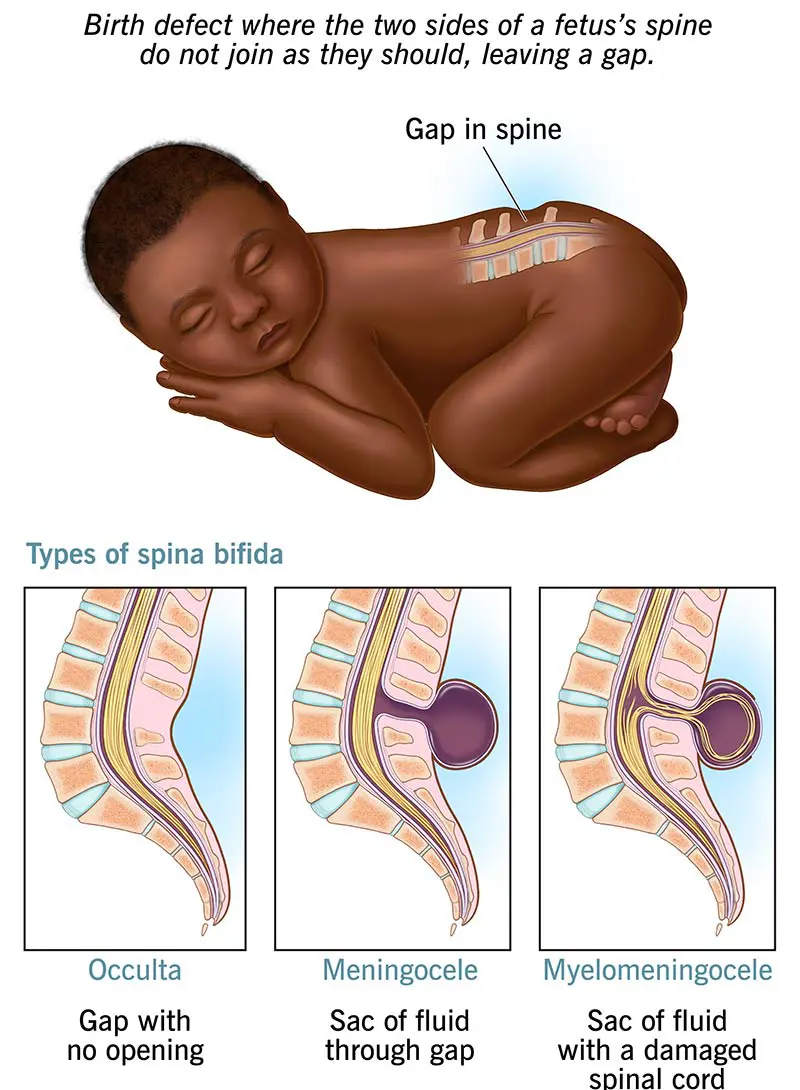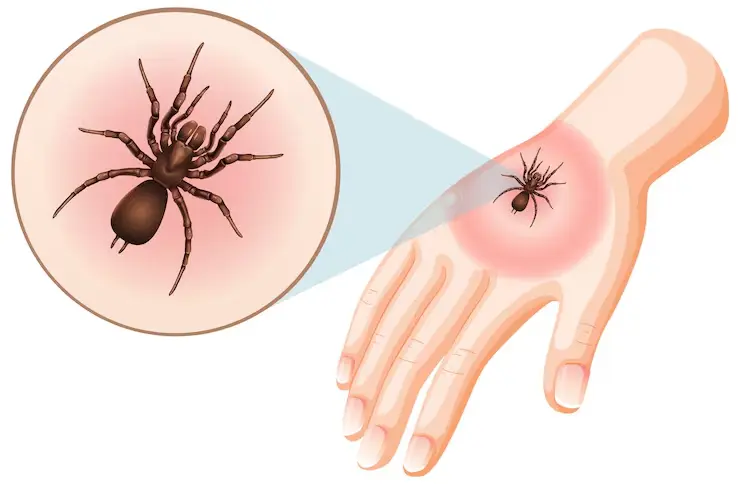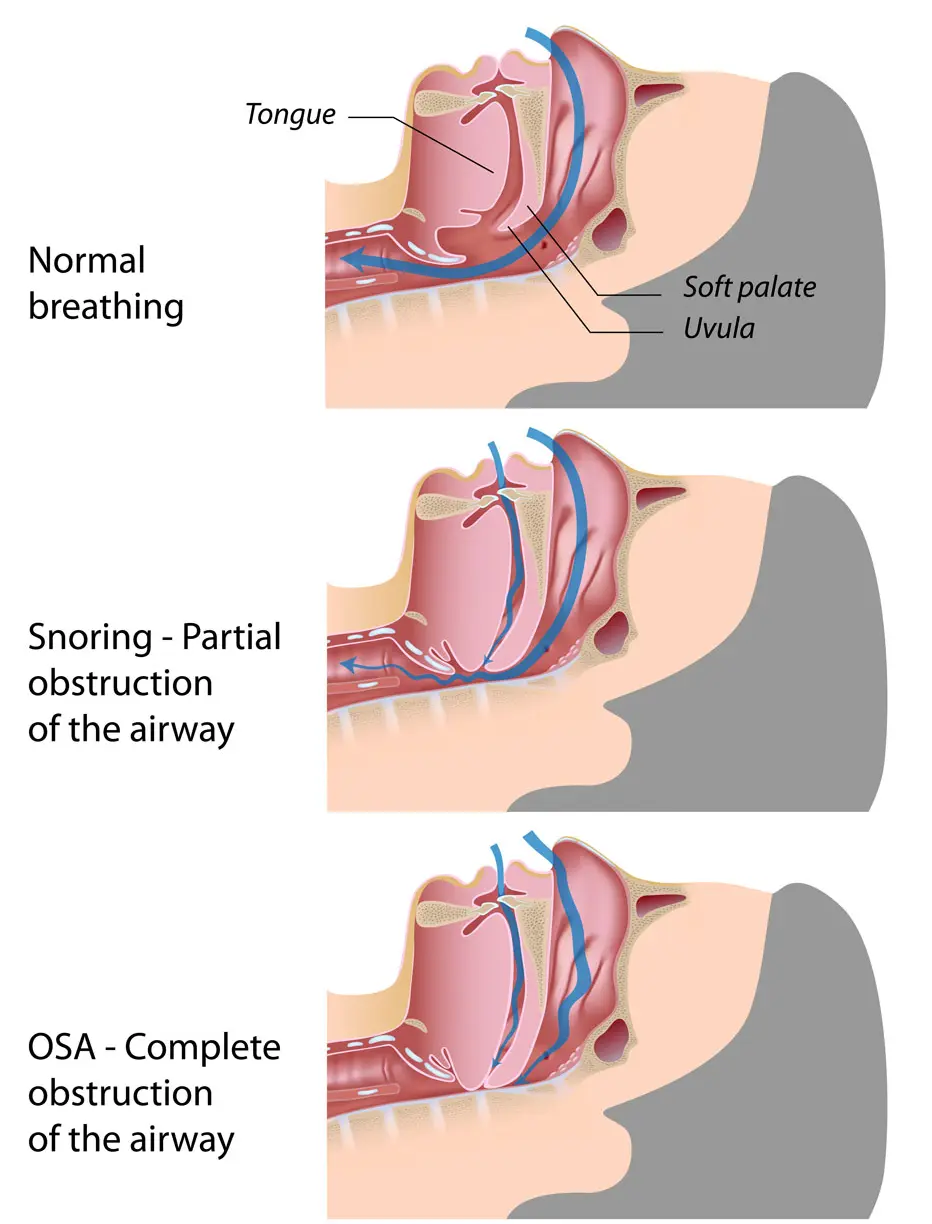Spinal arteriovenous malformation is a rare vascular condition in which there is an abnormal connection between arteries and veins in or around the spinal cord. This abnormal blood flow bypasses the normal capillary system, leading to increased pressure and reduced oxygen delivery to spinal cord tissue. Over time, this can damage the spinal cord and cause progressive neurological symptoms. Spinal …
Spina Bifida
Spina bifida is a congenital condition that occurs when the spine and spinal cord do not develop properly during early pregnancy. It is a type of neural tube defect and can vary widely in severity, from mild forms with no noticeable symptoms to severe forms that cause significant physical and neurological disabilities. Spina bifida develops before birth and is present …
Spider Bites
Spider bites occur when a spider injects venom into the skin while biting, usually as a defensive reaction. Most spider bites are harmless and cause mild symptoms similar to insect bites. However, a small number of spider species can cause more serious reactions. The severity of symptoms depends on the type of spider, the amount of venom injected, and the …
Specific Phobias
Specific phobias are a type of anxiety disorder characterized by an intense, irrational fear of a particular object, situation, or activity. The fear is out of proportion to the actual danger and leads to significant distress or avoidance. Common examples include fear of heights, animals, flying, injections, or enclosed spaces. Specific phobias often begin in childhood or adolescence and may …
Somatic Symptom Disorder
Somatic symptom disorder is a mental health condition in which a person experiences excessive and persistent concern about physical symptoms. These symptoms may or may not have a clear medical explanation, but the distress and preoccupation with them are disproportionate to any underlying condition. The disorder can significantly interfere with daily life, relationships, and emotional well-being. Symptoms are real and …
Solitary Fibrous Tumor
Solitary fibrous tumor is a rare type of tumor that arises from connective tissue, most often from the lining around organs such as the lungs, abdomen, or pelvis. It can also develop in soft tissues throughout the body. Most solitary fibrous tumors are slow-growing and benign, but some can behave aggressively and become malignant. Because symptoms are often mild or …
Soft Palate Cancer
Soft palate cancer is a type of head and neck cancer that develops in the soft palate, the muscular portion at the back of the roof of the mouth. It is most commonly a form of squamous cell carcinoma arising from the lining of the oral cavity. Soft palate cancer can affect speech, swallowing, and breathing depending on its size …
Snoring
Snoring is the sound produced when airflow through the nose and throat is partially blocked during sleep. It occurs when relaxed tissues vibrate as air passes through narrowed airways. Snoring is common and can affect people of all ages. While occasional snoring is usually harmless, frequent or loud snoring may disturb sleep quality and sometimes indicate an underlying sleep-related condition. …
Small Bowel Prolapse (Enterocele)
Small bowel prolapse, also known as enterocele, is a condition in which the small intestine descends and pushes into the lower pelvic cavity. It most commonly occurs when the pelvic floor muscles and supportive tissues weaken, allowing the small bowel to bulge downward. Enterocele is more frequently seen in women, particularly after pelvic surgery or childbirth, and may occur alongside …
Small Bowel Cancer
Small bowel cancer is a rare type of cancer that develops in the small intestine, the part of the digestive system responsible for absorbing nutrients from food. Although the small intestine makes up a large portion of the digestive tract, cancers in this area are uncommon compared to those of the colon or stomach. Small bowel cancer can affect digestion …









